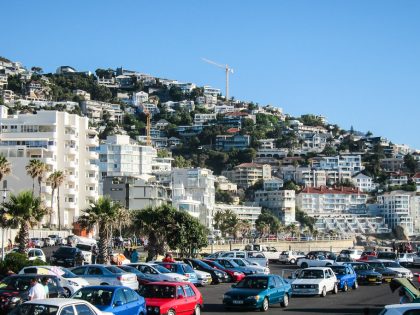
The Cyril Ramaphosa model
The election Monday night of Cyril Ramaphosa as president of South Africa’s ruling African National Congress…

The election Monday night of Cyril Ramaphosa as president of South Africa’s ruling African National Congress…

Much of black youth culture in South Africa celebrates constant self-invention, and is built on the gospel of entrepreneurship.

How media and anti-corruption campaigns reinforces, or fail to adequately address, racialized and ahistorical accounts of corruption as a problem in South Africa.

South African public life is rife with revisionism, often opportunistic. Take the case of Mangosuthu Buthelezi.

South Africa’s Constitution begins with a bold statement: “We, the people of South Africa, Recognise the

Interview with Fred Khumalo, author of a novel about the sinking of the SS Mendi, a warship carrying hundreds of black South African soldiers.

In Southern Africa, former liberation movements reclaim ownership over history and society not by seeking but by remaining in power.

Who produced that $30 mug you bought at Cape Town International Airport on your way home?

Many white South Africans are doing all they can to maintain racial inequalities and white privilege. It's a recipe for disaster. Hopefully they get it before it’s too late.

Faced with the uncertainty of the postapartheid world, my grandmother protects her children the same way she survived Apartheid: by making sure their papers are in order.

Amid the violence of August 2012, one positive feature that stood out was the resilience of the autonomous organization of workers and independent trade unions in Marikana.

It took the writer, later South Africa's ambassador to Sri Lanka, 30 years to talk to her mother about rape. Her mother's rape.

Reading three contemporary South African women authors: Lindiwe Hani, Pumla Gqola and Redi Tlhabi.

I was born during the state of emergency in South Africa in the 1980s and witnessed

Anthropologist Johnny Miller's aerial photographs chronicles geographic stratifications in South Africa and beyond.

An edited version of this post appeared in the South African newspaper, City Press, as part of "Thought We Had Something Going," an e-anthology exploring post-1994 experiences.

In his life and books, Alex La Guma struggled for a society in which all people could find their humanity, argues his friend Ngugi wa Thiong'o.

When Cape Jazz found a perfect mix with R&B, fusion and pop.

Improving socio-economic conditions may prove to be the precondition for fighting corruption.

A black woman, born in Cape Town, returns to the city to buy a house where she will hopefully retire.